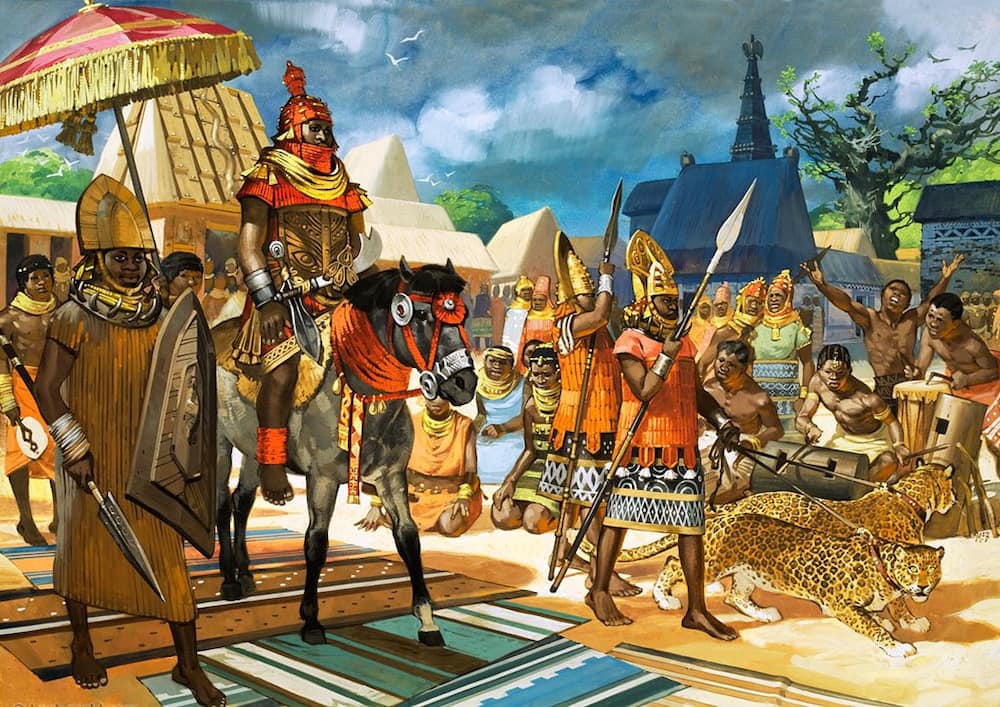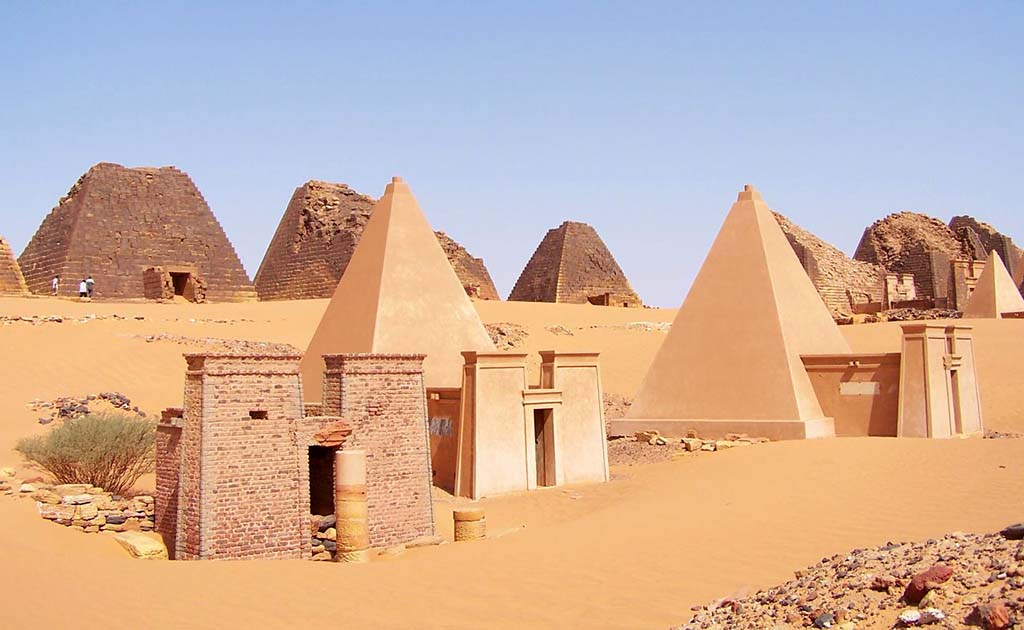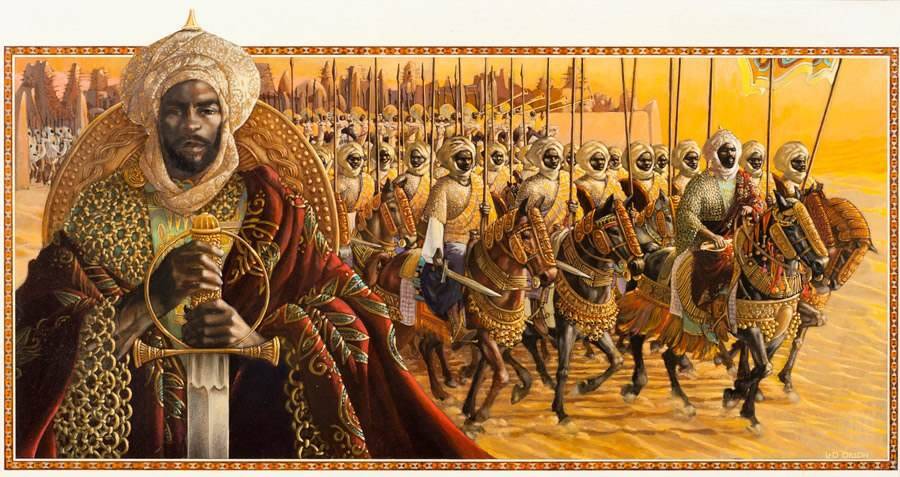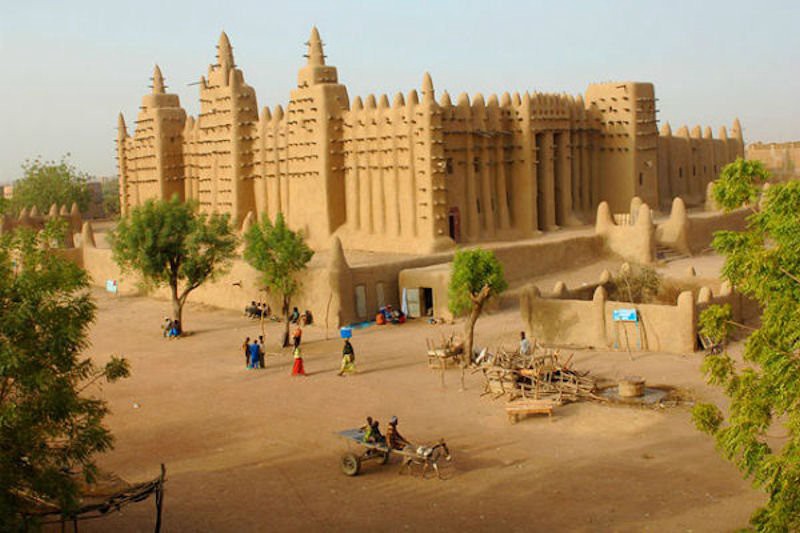Although European colonialism will have you think otherwise, many parts of Africa were once self-sufficient and powerful. The continent was filled with great and influential African empires. These empires were renowned not only in Africa but also around the world. They left a lasting legacy that can still be seen today. The most well-known African empires are the Egyptian, Nubian, and Ethiopian. These empires were all located in Northeast Africa and were some of the most powerful empires of their time.
The Egyptian empire was by far the most powerful and influential African empire. It was one of the largest empires in the world. Its legacy can still be seen today in many aspects of Egyptian culture. The Nubian empire was also powerful. It was located in modern-day Sudan and was known for its rich culture and art.
The Ethiopian empire was another strong African empire. Located in modern-day Ethiopia and Eritrea, it was a diverse and multicultural empire known for its cuisine and coffee.
However, these are just a few of the most influential African empires in history. There are many more that have left a lasting legacy on the world. And you probably don’t see much about them in the history books.
Read on to find out the seven most influential African empires.

7 Most Influential African Empires
African empires were influential in both regional and international affairs. They were also powerful forces in the spread of culture and civilization. Here are some of the most influential African empires in history:
The Kingdom of Kush
The Kingdom of Kush remained a regional power in Africa for more than a thousand years. This was despite being frequently overshadowed by its Egyptian neighbors to the north. The ancient Nubian empire peaked in the second millennium B.C. when it reigned over a sizable portion of present-day Sudan along the Nile River. Nearly all information about Kush comes from Egyptian sources, which suggests that it was a bustling economic hub with a thriving market for gold, ivory, incense, iron, and other precious metals.

The kingdom absorbed many of its neighbor’s practices and was both a trading partner and a military adversary of Egypt. It even ruled Egypt during the 25th Dynasty. The Kushites erected their own pyramids, mummified their dead, and worshipped some of the Egyptian gods. More pyramid ruins than in the entirety of Egypt can be found in the region surrounding the ancient Kushite city of Meroe.
Read: Facts About Ancient Egyptians That European Colonialism Has Misconstrued
The Kingdom of Ghana
Known more widely as Wagadu, this African nation served as a significant stop on the trans-Saharan trade route that linked the Sahelian communities of Africa to the marketplaces located along the Mediterranean Sea’s coasts and the trans-Saharan gold trade. One of these, Koumbi Saleh, was the largest city south of the Sahara Desert despite the country’s rumored multiple capital city changes.
It had a peak population of between 15,000 and 20,000, an astonishing number for a city with a meager water supply. They had a focus on trading kola nuts and gold (the kola nut became the secret ingredient in Coca-Cola centuries later). Around the year 1240 CE, when it joined the kingdom of Mali, the Kingdom of Ghana began to fall into disarray.
The Mali Empire
The Mali Empire (1235 to 1670) was popular for its gold mining. In fact, it supplied nearly 50% of the gold used in the world during that time! It replaced the Ghana Empire after it fell. Mansa Sundiata Keita built the empire, which is now a part of Guinea, Nigeria, the Gambia, Guinea Bissau, Niger, Mauritania, and Senegal. The empire eventually rose to become the intermediary dealer between other African nations via their new trade routes, the Sahara Desert and River Niger.

The gold trade generated significant income for the empire. It made its rulers some of the richest persons in history at the time, including Mansa Musa, the richest man in human history. Thanks to the increasing demand for gold by other countries. Unfortunately, the civil war and the introduction of a new trade route, which sparked the expansion of the Songhai Empire, ultimately caused the empire to fall in the 1460s.
The Songhai Empire
During the 15th and 16th centuries, the Songhai Empire replaced the Mali Empire as the most significant power in West Africa. It was situated at the center of the River Niger, in what is now central Mali. And it reached as far east as Nigeria and Niger and west of the Atlantic Ocean.
The country’s first king Sunni Ali founded Geo, which eventually developed into a thriving commercial hub by the 13th century. Due to this, the Mali Empire became interested in it. By the end of the same century, the Malians had invaded Geo and seized control of their commerce.
They had control until the 14th century, when the Mali Empire started to fall apart. And the rulers of the Songhai Empire took advantage of the situation. They devised a means to regain control over several trans-Saharan commercial routes and succeeded. Afterward, the Songhai empire quickly became one of the most powerful states in African history.

Great Zimbabwe Empire
Great Zimbabwe is one of sub-Saharan Africa’s most magnificent structures. It is a massive grouping of stacked boulders, stone towers, and defensive walls constructed from cut granite stones. The rock fortress has long been the focus of myths and tales. It was previously believed to be the home of the Biblical Queen of Sheba. However, scholars today recognize it as the capital of an indigenous empire that ruled the area between the 13th and 15th centuries.
A sizable portion of what is now Botswana, Zimbabwe, and Mozambique was under the control of this kingdom. It was located on a trade route that connected the area’s gold mines with ports on the Indian Ocean coast and was particularly wealthy in cattle and precious metals. While very little is known about its past, the ruins of objects like Chinese pottery, Arabian glass, and European fabrics show that it was once a bustling commercial hub. The Great Zimbabwe fortress city was inexplicably abandoned sometime in the 15th century after the kingdom’s fall. Although in its prime, it was said to have housed over 20,000 people.
The Benin Empire
The Kingdom of Benin was regarded as the oldest and one of the most advanced states in West Africa. This empire was founded in the eleventh century. It was located in the southern region of what is now Nigeria. The people of the Benin Empire were well known for trading exquisite works of art made of bronze, ivory, and iron. They later established trade ties with the Portuguese, exchanging Manilla and weaponry for pepper, ivory, and palm oil (a means of trade by barter employed for exchange during this period). They soon started trading with Britain as well, which ultimately led to their conquest by the British empire in 1897.
The Ethiopian Empire
A portion of what is now Ethiopia and Eritrea was once part of the Ethiopian Empire. The Solomonic dynasty, which existed from C.1270 to 1974, marked the start of it. According to history, the Ethiopian Empire endured numerous tragic occurrences. In addition to defeating Italy in the First Italo-Ethiopian War, it successfully resisted other invasion attempts by other strong countries, including Western colonialism. Nevertheless, it fell apart after losing the second battle in 1935, ushering in a military dictatorship by 1974.
Read: 10 Influential African Kings That Remain in the Annals of Time

Other Influential African Empires
The above influential African Empires are not the only ones that ever existed. There are other ones that, just like the ones mentioned, made history in amazing ways. Hence, here are some other African Empires that would interest you.
The Land of Punt
The Punt culture is one of the most intriguing in Africa. In Egyptian records, the kingdom is described as a “Land of the Gods” rich in ebony, gold, myrrh, and exotic creatures like apes and leopards. Historical accounts of the empire date to about 2500 B.C. During Queen Hatshepsut’s rule in 15th century B.C., the Egyptians dispatched massive flotillas and caravans on trade missions to Punt, although they never pinpointed its location.
The location of the legendary kingdom is currently a heated topic among academics. Although the Arabian Peninsula and the Levant have been suggested as prospective options, most people think they existed somewhere along the East African Red Sea coast. A group of experts tried to identify Punt in 2010 by examining a mummified baboon its rulers once gave to the Egyptian pharaohs. Despite their findings indicating that the remains most closely resembled animals discovered in contemporary Ethiopia and Eritrea, the exact location of the Land of Punt is still unknown.
We Design & Develop Websites, Android & iOS Apps
Looking to transform your digital presence? We specialize in creating stunning websites and powerful mobile apps for Android and iOS. Let us bring your vision to life with innovative, tailored solutions!
Get Started TodayThe Aksumite Empire
This empire was also referred to as the Aksum or Axum Kingdom. It existed from 100 CE until 960 CE and was one of the existing East African kingdoms. The empire is currently present in Ethiopia and Eritrea. The Aksumites were significant participants in the trade networks connecting ancient India and the Romans. The empire, along with others like Persia, Rome, and China, was regarded as one of the four major powers during its era. The Kingdom ruled over Southern Egypt, Ethiopia, Eritrea, and Northern Sudan.
Before You Go…
Let me tell you a little bit about Nicholas Idoko Technologies. We help businesses and companies build an online presence by developing web, mobile, desktop and blockchain applications.
As a company, we work with your budget in developing your ideas and projects beautifully and elegantly as well as participate in the growth of your business. We do a lot of freelance work in various sectors such as blockchain, booking, e-commerce, education, online games, voting and payments. Our ability to provide the needed resources to help clients develop their software packages for their targeted audience on schedule.
Be sure to contact us if you need our services! We are readily available.
Put Your Tech Company on the Map!
Get featured on Nicholas Idoko’s Blog for just $200. Showcase your business, boost credibility, and reach a growing audience eager for tech solutions.
Publish Now










